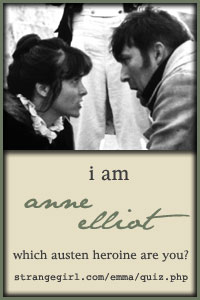I
love the way this photo turned out, of the little orchard behind the house in
its spring finery, seen through the window screen. I’m reminded just how many screens we see life through, much
of the time—our view of things affected, if not actually distorted.
There
are those famous rose-colored lenses, the rosy glow of La Vie en Rose, making everything much
more romantic than it is.
And
then, while listening to the song in some dim smoke-filled room, there is that
smoke screen which makes everything seem like something out of a Raymond
Chandler novel—a little world-weary, a little noir.
There
are cataracts, blurring the vision in old age; and I’m remembering my mother’s
wonderful remark when she’d had hers removed—“the world looks like it’s been
washed.” Dirt in any of its guises
was anathema to her.
I
know a little bit the feeling of snow-blindness. In Montreal one long-ago winter, my eyeglasses steamed up
from my breath travelling up my woolen scarf—and then froze. A screen of breath, a screen of frost,
a very introspective view.
Not
quite so drastic is the screen of moisture-beaded glass—whether science
experiments, cocktails, or rainy haunts—the sparkle of adventure, to me, coming
from a place where rain and lovely moisture weren’t common.
Always
dire is “now we see through a glass darkly.” An explanation of this ominous (dark) phrase is given here. “The ‘glass’ the
writer describes here is actually a mirror. The mirrors of the ancients were of polished metal, in many
cases they were of brass and they required constant polishing, so that a sponge
with pounded pumice-stone was generally attached to it. And it was the
apostle Paul who wrote this famous passage from the Bible in a letter to a
church in Corinth, which was famous for the manufacture of these kinds of
mirrors. The images reflected in these brass mirrors were indistinct in
comparison to our modern mirrors. They were seen Darkly Which, literally
translated from the original Greek language in which he wrote, means, ‘in a
riddle or enigma…that the revelation appears indistinctly, imperfectly.’”
Seeing
back to lighter times is by contrast facilitated by looking through old wavy
window glass, in hundreds of small panes, like that on the sun porch of the
wonderful old Victorian house I once rented.
And
then there’s the joy of unscreening; of flinging back heavy shutters to the day, maybe
in an albergo in Rome one August morning.
image: Christie B. Cochrell, Through the Window Screen




















i'm thinking they should clone you and put one of you into every classroom in the country.
ReplyDeletemaybe our entire upcoming generations would catch the light and wonderment of learning again!
i am guilty of la vie en rose.
BUT!
such a pleasurable guilt to have! lol.
Thank you, I think! I wonder if it would be fun to be cloned? I would be even more scattered than I am already!
ReplyDeleteEnjoy the rose...